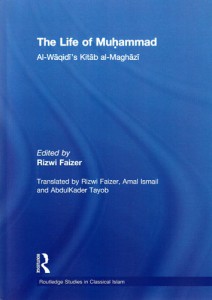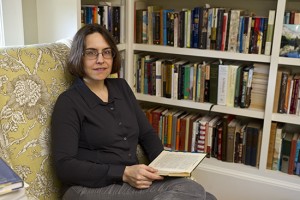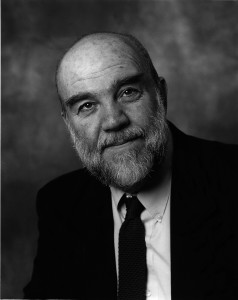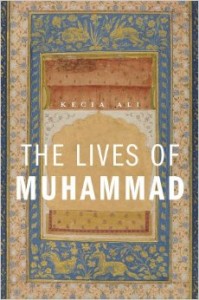The Lives of Muhammad
Prophet Muhammad is remembered in a multitude of ways, by both Muslims and non-Muslims. And through each retelling we learn a great deal not only about Muhammad but about the social milieu of the authors. In The Lives of Muhammad (Harvard University Press, 2014), Kecia Ali, Associate Professor of Religion at Boston University, explores how several central components of the prophet’s biographical narratives are reframed by various authors within modern accounts. We find that biographers’ notions of historicity changed over time; emphasis on the miraculous and supernatural events in Muhammad’s life are interpreted differently; and Prophet Muhammad’s network of relationships, including successors, companions, and family members gain wider interest during this period. We also find that from the nineteenth century onwards, Prophet Muhammad is often framed within the history of ‘great men,’ alongside figures like Jesus, Buddha, or Plato. Descriptions of Muhammad’s life cross a range of genres, such as hagiographical, polemical, political, or seeking to facilitate inter-religious dialogue. In our conversation we just begin to scratch the service of this rich book, including Ibn Ishaq, sexual ethics, revisionism, Muhammad’s first wife, Khadija, and young wife, Aisha, Orientalist William Muir, polygamy, attempts to counter perceived Western misinterpretations, marital ideals, and contemporary anti-Muslim animus.
Welcome Kecia Ali, thanks for talking with New books in Islamic studies, and thanks for writing a wonderful book ‘ The lives of Muhammed’. How are you?
I am doing well. Thanks for having me
Before we get into the content of the book, it is our tradition here to find out little bit about how you got interested in the study of Islam. Could you tell us about your bag round, influential mentors who guided your scholarship?
It is a great question and my answer is little bit meandering. As a High school student, I was selected to spend a month in Tunisia with the national council on US-Arab relations. I was very interested in learning how to count ten in Arabic( laughing). Then I started college in the Stanford which at the time didn’t have anyone on the faculty teaching about Islam regularly. So I took Middle East History classes. But mostly as an undergraduate, I worked on Latin America. I have lived in Brazil, and that ended up being my primary area of interest. Although, my undergraduate thesis project was about women’s mobilization in a Brazilian town and looked extensively at religion there, at liberation theology, the role of a group of missionary sisters, I did not think of myself as studying religion. I thought of myself as studying Latin America. When I went to graduate school, I went there to study Latin American history. I was going write about 20th century Brazil. I went to Duke University. Then I thought: Do I really want to write the dissertation in Latin American History or Do I really want to switch things up? So I ended up doing two more years of course work in Islamic Studies in the Graduate program in Duke University. That takes things up on this particular path.
You are a prolific author. Your scholarship ranges a wide set of topics. Can you talk a little bit about how this project began to emerge as a book and how it relates to your larger research trajectory?
I have focused chiefly on Islamic Law as a genre of Fiqh. But I also have been interested in questions of gender and sexuality. When one is interested in questions of gender and sexuality or when one is interested in questions of law, legal precedent and legal thought, the Prophet’s example, the Prophet’s normative sunnah comes up early on and resurfaces continually. So, while researching my dissertation, which was about 9th and 10th century Islamic Law, marriage and divorce, I kept coming across references to the Prophet’s behavior, and statements on topics related to marriage and other things. I was really interested in the ways in which he was both exemplary and exceptional, how was it that the jurists were dealing with this, and how contemporary Muslims were talking about his life, his marriage for example. About ten years ago, I wrote a short essay which ended up publishing in the Pakistani Journal of Islamic Studies. The essay was titled ‘A Beautiful Example’. It was precisely about contemporary marriages and how our thinking about those topics might be enriched by considering the early legal tradition. I thought at that time that a book about the legal treatment of Muhammad’s marriages might be useful, interesting. Then it took me much longer than I expected to write the other things that I was writing. Along the way, I found myself writing a biography of Imam Shafi’I who is a 9th century Muslim jurist and legal theorist. In the process of doing the research and writing for that book, I read a fair amount about the genre of biography and how that has changed in different times and different places over centuries. That got me thinking about the way that biography has been a tremendously important genre for the construction of ideas about who Prophet Muhammad was, how his life matters. By the time I finally got back to this project about Prophet and about his marriages, I had really moved into a project about biography. Although I had originally planned to do a book that really started from the early period, started from the earliest extant biographies and came up to the present day, Tarif Khalidi moved me with a wonderful book called ‘Images of Muhammad’ where he looks predominantly at the Muslim biographical tradition over centuries and gives a kind of an overview of a series of moments and trends. The core of the book is where Qalidi is ending. He writes about the assumptions about where you get the valid information for biography, about how it is incorporated by Muslims thinking about who Muhammed is, what it means to be Muslim in this age, what it means to be a prophet and what it means to be a great man and all of these things. That became the starting point for the book.
Can you talk a little bit about what types of evidence we have for Muhammad’s life? why people might be skeptical of these sources? what non-Muslim sources say from this early period? Can you help us think about the early period here?
There are three main early sources from which biographers tend to build; Ibn Ishaq in the recension of Ibn Hisham accounts the life of Muhammad by 200 years. Some will argue that the material is earlier and it’s preserved and it reflects the kind of continuous old tradition. But it is certainly the case that this biographer is interested in different kinds of things than the early Muslims would have been interested in. There is also Al-Waqidi’s Al-Maghazi, the book of campaign, which has now been translated into English. There is a long Routledge edition of the book. It is really about Muhammad’s military campaign. It is filled with lists of soldiers and horses. There is a lot of information in it. But it is not really a biography in the sense that we might think of that way. Another book that ends up becoming important is the book of Tabari. The volumes that he put together about Muhammad’s life became really important course sources for later historians. There is a lot to be said about the particular kinds of issues that preoccupied Tabari. One thing one can say about all of these early Muslim sources apart from the question of their distance in time, from the life of Muhammad, is that they all are written by people who have a particular kind of stake in ongoing contests about what the organization of Muslim community should look like, who its legitimate rulers are, how they should rule. All these things have a connection to how the people around Muhammad and the events of Muhammad’s time are portrayed. 
As for the question of what non-Muslim sources say over the past 5-10 years, there have been a number of publications that have looked again at the Syriac sources, for instance, and have tried to think about what we know about Muhammad if we are not looking at the Muslim sources. This is the question that Hagarism asked nearly 40 years ago. But what we are finding today is that we are starting not just to question the existing narratives but also to begin to piece together what seems to be a fairly compelling renewed interpretation about, for instance, the ecumenical nature of Muhammad’s community of believers. They did not have capital in contrast to Christians and Jews. They were a broader category encompassing a variety of fluid religious categories. None of these are settled questions. There are a variety of people rethinking what we know, on what basis we know it. But these are very different questions.
In the book, you primarily focused on the 19th and 20th century accounts, both of Muslims’ and non-Muslims’. Can you tell us about some resources? Because there are really fascinating accounts that you are covering here through various lenses.
William Muir’s biography of Prophet Muhammad, which is four volumes, is a kind of 19th century narrative history that tries on the one hand to be literary, and on the other hand to be scholarly. Muir’s biography really changed the game. It became the standard against which other biographies were compared. It also made it impossible to talk about Muhammad’s life without rising these questions of historical facts. One had to at least address those questions about what the early sources are, what the reliability of this source is, so people who didn’t want to agree with him about the trustworthiness of Muslim sources were trustworthy, nonetheless had to make a case for why the sources they chose ought to be trustworthy. So Muir is representative of, and also influential in this turn to fact rather than symbol in biographies of Muhammad.
Many of the accounts, even by non-Muslims, are sympathetic in their view, while others are not. We also have Muslims responding to these accounts. What was going in the 19th century? There was a kind of increased focus on writing about Muhammad.
I think there are couple of things that together make this increased focus on Muhammad’s life particularly compelling for authors of the period. One of course is the increase in print culture. It is much more available for people to use as a basis for disputing with one another. In India in particular, and then in Egypt one sees a very active culture of disputation of missionary confrontation. The other thing that is going on is the consolidation of a set of new ideas about religion, prophets and books that makes the focus on Muhammad and the Quran absolutely central to any discussion about Islam. Of course, Muhammad has always been important. Quran has always been important. If you are going to talk about a book, if you are going to talk about religion, you are going to talk about a particular bounded tradition that has a founder and a scripture.
Another thing that you focus on in the book is the ways of framing and particularly the way authors are framing Muhammad’s life as a social actor. Can you talk a little bit about why people were talking about Muhammad in terms of liberty and nation and other kind of contemporary terms and why they have left these more traditional categories behind?
In the 19th century, people were thinking about men, and it is men of this particular time, who do important things, not just heroes like Wellington or Nelson but Napoleon, who is a kind of anti-hero. British biographers who were very much at the forefront of writing and thinking about Muhammad. These are men whose lives reshaped the map, quite literally, of Europe at the time. Thinking about men who accomplished particular kinds of things becomes the lens that they bring to the life of Muhammad. Their thinking in questions of the spread of territory, the consolidation of power, who should rule over whom, becomes central to the way that Muslims then began to write about Muhammad. We have Syed Ameer Ali, for instance, who wrote about Muhammad in terms of what he did, what he accomplished, and then also situated him in this pantheon of founders of religion.
Can you talk about how Khadeeja is portrayed in biographies, in what ways is she contextualized, what kind of concerns arised in relation to her?
The way in which Khadeeja becomes increasingly central to biographies of Muhammad was one of the most striking things that I discovered. Of course, she shows up in the early biographies. There is a tremendous amount of respect for her. She is associated with crucial turning point in Muhammad’s life. However, if you look at other sources for Muhammad’s life, she really does not figure nearly as much as his later wives. When Muhammad’s marriages are talked about, it’s really his later polygynous marriages that get most of the attention. Khadeeja is sort of important and respected and yet not actually all that central to the narrative.Once we start getting to medieval biographies and then modern biographies by westerners, Khadeeja becomes an important flashpoint for the criticism of Muhammad that he was ambitious, that he married her to take advantage of her social prominence and her wealth to use her in order to gain power. What happens in between 16th, 17th, 18th century and the 19th century, where this particular model of biography is crystallizing, is that we get a shift from focusing on Muhammad’s lustfulness, his debauchery to a focus on the oppression of women and to Muhammad’s polygeny as particularly problematic. And then he gets drunk on power. His lust for power overshadows whatever good qualities had manifested earlier on and he begins accumulating all of these other wives. This goes along with the way of thinking about Muhammad’s career in which he is better and acceptable when he is in Mecca, and when he moves to Medina and gains governance of the community, he comes to be perceived as abusing power. The marriage to Khadeeja becomes good, while the latter marriages become the bad marriages. When Muslim biographers takes this up, they do a number of different things with it. One of the things they do is that they take up Muhammad’s marriage to Khadeeja and use this as the central piece for talking about how wonderful Muhammad was as an husband and put the focus there as opposed to the latter marriages.
There is many stuffs we don’t have time to get into. This is really a rich book. I hope listeners will grab a copy. I am sure they will be interested to hear about what you are working on now. Could you tell us about the projects that you are working now, publications that might be coming out soon?
In 2006, I published my first book ‘Sexual ethics and Islam’. A tenth anniversary edition of the book is coming out early next year. It’s the same material. I didn’t go back and succumb to the tendency to revise the chapters themselves. But what I did do is add about 20,000 words of new material. There is a new preface, there is a new afterword. The other thing that I am working on right now is a book for the classroom on “Women and Muslim tradition” for a series on ‘Women and world religions’.
This is a transcript of Kecia Ali’s conversation with Kristian Petersen for New Books in Islamic Studies Podcast
Transcribed by: Saad Salmi

























Connect
Connect with us on the following social media platforms.